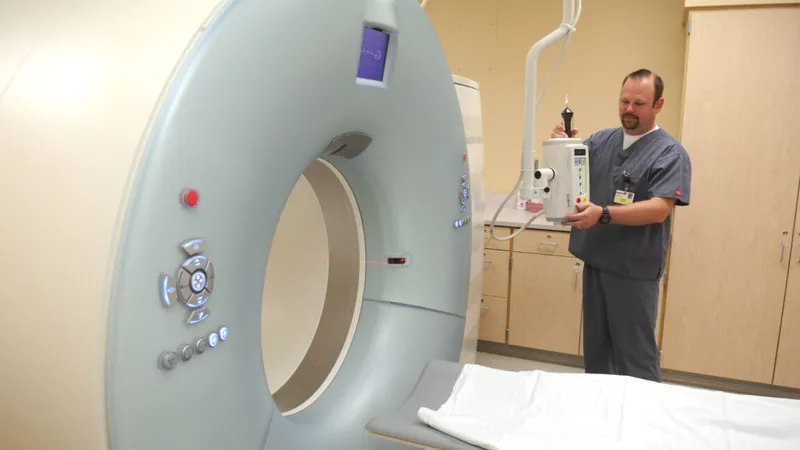
Startling Study: CT Scans Linked to 5% of Future Cancers!
2025-04-14
Author: Ying
The Hidden Dangers of CT Scans
Computed tomography (CT) scans, essential tools for diagnosing and monitoring health conditions, may come with a grave downside: a potential to cause a staggering 5% of future cancers, according to new research published in JAMA Internal Medicine.
The Shocking Numbers Unveiled
In 2023 alone, researchers analyzed data from a whopping 93 million CT scans conducted on 62 million individuals. Their findings estimated that these imaging procedures could result in approximately 103,000 new cancer cases. To put this into perspective, these future cancers would mirror the risks associated with major lifestyle factors such as alcohol and obesity!
Cancer Types on the Rise: What to Know
Notably, lung and colon cancers topped the list of those linked to CT scans—worrisome since these types are increasingly being diagnosed in younger populations for reasons still shrouded in mystery. The abdominal and pelvic scans emerged as the most hazardous in terms of potential cancer risk.
A Call for Caution from Experts
Led by researchers specializing in epidemiology and biostatistics at the University of California, San Francisco, the study advocates for a more mindful approach when ordering CT scans. While the life-saving benefits of CT imaging are undeniable, the authors highlight the importance of optimizing doses to better balance the risks.
"Despite being lifesaving, the potential harms of CT scans are often underestimated," the researchers state, emphasizing the drastic 35% rise in CT scan usage since 2007—an increase that cannot be solely attributed to population growth.
Assessing the Uncertainties
While experts echo the need for judicious use of CT scans, they caution about the uncertainty surrounding these estimates. Many risk projections stem from studies of atomic bomb survivors or individuals exposed to occupational radiation rather than direct data on adult patients.
Weighing Risks and Benefits
Stephen Duffy, Professor Emeritus of Cancer Screening at Queen Mary University of London, advises patients not to shy away from recommended CT scans. He notes that the estimated increase in lifetime cancer risk from a single CT scan is minimal—around 0.1 percent—compared to a baseline 40% cancer risk in the general population.
Experts Stress the Importance of CT Scans
Doreen Lau, a cancer biology expert at Brunel University, supports this view, urging patients to recognize that the benefits of early disease detection typically far outweigh the risks involved.
Calls for Improved Practices and Alternatives
In light of the rising CT scan prevalence, health professionals are encouraged to consider alternative imaging methods such as ultrasounds and MRIs. In an insightful editorial, Yale's Ilana Richman and NYC Health's Mitchell Katz argue for educating clinicians on avoiding low-value testing and involving patients in imaging decisions, underscoring that there's no one-size-fits-all solution.
As the landscape of medical imaging evolves, finding the right balance between necessity and risk remains crucial.



 Brasil (PT)
Brasil (PT)
 Canada (EN)
Canada (EN)
 Chile (ES)
Chile (ES)
 Česko (CS)
Česko (CS)
 대한민국 (KO)
대한민국 (KO)
 España (ES)
España (ES)
 France (FR)
France (FR)
 Hong Kong (EN)
Hong Kong (EN)
 Italia (IT)
Italia (IT)
 日本 (JA)
日本 (JA)
 Magyarország (HU)
Magyarország (HU)
 Norge (NO)
Norge (NO)
 Polska (PL)
Polska (PL)
 Schweiz (DE)
Schweiz (DE)
 Singapore (EN)
Singapore (EN)
 Sverige (SV)
Sverige (SV)
 Suomi (FI)
Suomi (FI)
 Türkiye (TR)
Türkiye (TR)
 الإمارات العربية المتحدة (AR)
الإمارات العربية المتحدة (AR)